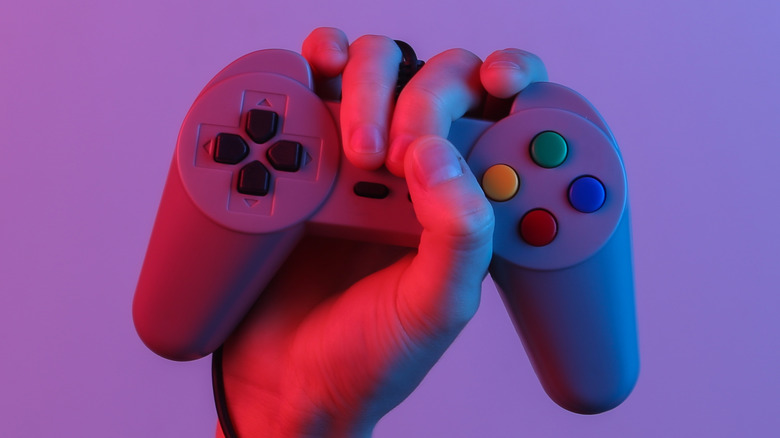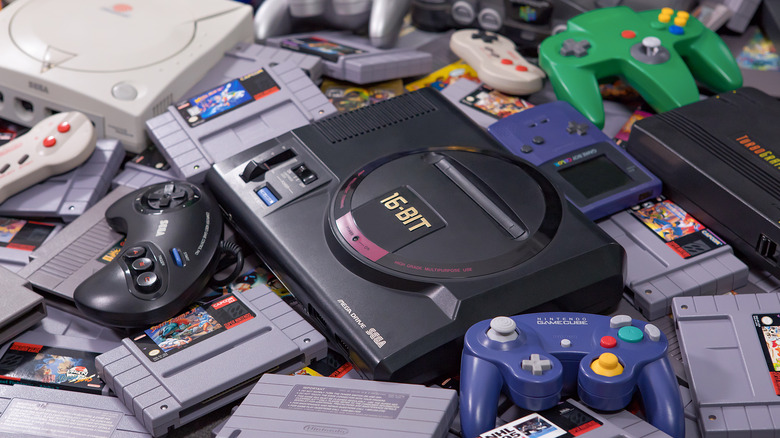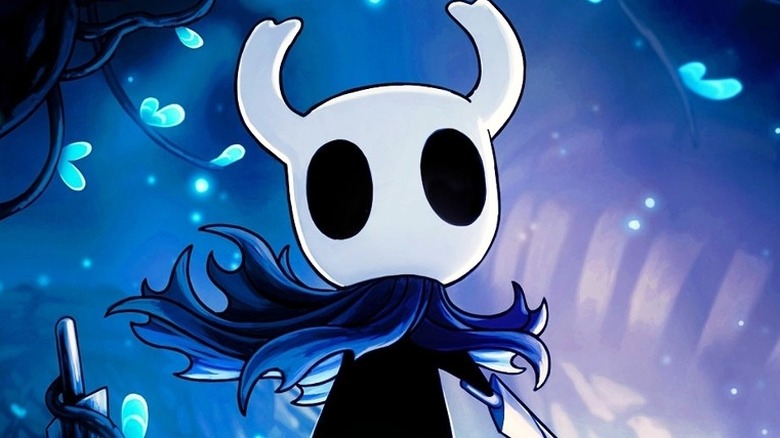The Real Truth About Video Game Prices
Things got worse for next-gen game prices shortly after they began releasing, and companies had to make the decision whether to raise prices or keep them steady as the transition to new platforms began. Even though PS5 games could have been even more expensive, many fans still feel irked by the steep $70 price tag of some next-gen titles. To add to fans' disappointment, Sony has announced that it will no longer offer free PS5 upgrades for first-party titles after the release of "Horizon Forbidden West." It's easy to see how some gamers might feel frustrated over the perceived high cost of video games — but in reality, games are actually less expensive than they've ever been.
As gamers continue to move into a new generation of consoles (and higher game prices), it can be oddly comforting to realize that games have always been kind of expensive, and they're cheaper now than they have been in the past — that is, if gamers maintain a certain perspective on money and inflation.
To illustrate this, YouTuber VideoGameDunkey recently took a deep dive through video game history to examine how games aren't as pricy as gamers might think, encouraging gamers to remember that when they buy a game, they're buying hours of enjoyment and a piece of art. Here's how gamers are actually getting a pretty solid deal on new titles.
Some things change, some things stay the same
VideoGameDunkey argued that video games are actually cheaper now than they were when they first entered into global markets. When the Atari 2600 was released in 1977, it cost only $200. That sounds great until you realize that, due to inflation, that would equal about $900 today, making it significantly more expensive than the coveted PS5. Meanwhile, Atari games cost about $20-30 at the time, which comes out to over $100 after inflation in today's money.
By the time the NES rolled onto the scene, video game prices had already risen significantly. VideoGameDunkey explained that games saw a sudden price jump from $20-30 to $60, which would equal over $150 in 2021. Then, things just sort of stalled. For years, games sat at an even $60, despite multiple console changes and evolving technology.
Meanwhile, games only got more expensive to make. As Charlie Hall pointed out in a piece for Polygon, AAA titles cost millions of dollars to make. Hall cited a study by designer and researcher Ralph Koster, who concluded that the price of big-budget games is actually going down in comparison to the cost of development. Combining inflation and changing development costs means that gamers are actually getting more value from games now than ever before. However, even if games aren't that pricy in the long run, that doesn't mean that all games are created equal.
Not created equal
Even though most AAA games cost $60 or more (on consoles like PS5), that doesn't mean that they're all worth that price. VideoGameDunkey pointed out that games from big studios might sell for market price, but many fail to live up to gamers' expectations. For example, "Cyberpunk 2077" released in an unfinished state, with enough bugs to render it unplayable. CDProjekt, the developer behind the title, admitted what everyone suspected, stating that it knew the game shouldn't be released but pushed it out anyway, complete with a hefty price tag. "Cyberpunk 2077" might be an extreme example of a common problem, but with developers able to update games digitally at any time, it makes sense in some cases to release a game and add in more features later.
VideoGameDunkey argued that indie games often offer more bang for gamers' bucks, packing deep, meaningful experiences into $20 packages. The digital market has allowed indie developers more access to fans than ever before, negating the need for a pricy physical release and allowing gamers to purchase directly from a digital platform. Some indie games don't even have an entire development team behind them, and are made by only a few talented people.
The game market feels like it's rapidly changing, but some things are staying the same, including the cost of games, which haven't changed as much as gamers think.



